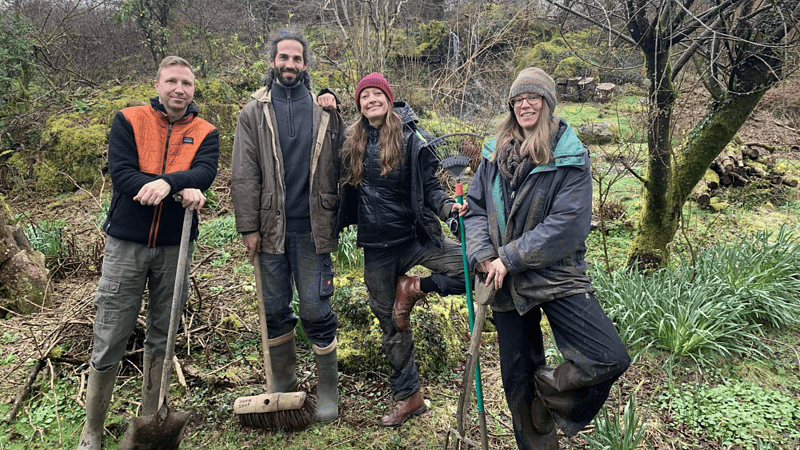
Finding Contentment in a Scrolling World
In the soft glow of morning light, as we roll out our mats and settle into our practice, many of us seek that elusive feeling of santosha, one of yoga's fundamental niyamas or observances. Yet the moment we check our phones afterward, that hard-won peace can vanish with a single scroll.
Reading time: 2 minutes
The Ancient Wisdom of Santosha
Santosha asks us to find contentment regardless of external circumstances—to cultivate a sense of inner satisfaction independent of what we have or don't have. This principle invites us to observe our surroundings with equanimity rather than judgment, accepting what is without constantly craving more.
In traditional yogic texts, contentment wasn't positioned as perpetual bliss, but rather as an ongoing practice of finding peace amid life's inevitable fluctuations. The sages understood that human existence contains both pleasure and pain. Santosha wasn't about bypassing difficult emotions but developing the capacity to remain centred through them.
Modern Media's Challenge to Contentment
Today's media landscape presents unprecedented challenges to this practice. Our devices deliver a constant stream of global catastrophes—climate disasters, political upheaval, humanitarian crises—alongside algorithmically curated displays of seemingly perfect lives.
Tara Brach (psychologist and meditation teacher) said "Our attention is the most precious resource we have, yet we're giving it away to streams of information that often leave us feeling depleted rather than nourished."
We're experiencing a form of collective trauma from constant exposure to global tragedy, while simultaneously being bombarded with images that trigger comparison and inadequacy.
This digital whiplash between disaster news and perfection-chasing leaves many yogis in a state of persistent discontentment—anxious about world events and also feeling guilty for their relative comfort, while paradoxically feeling their own lives don't measure up to others'.
Reclaiming Contentment
How then do we practice santosha in such conditions? The answer isn't technological abstinence, but rather a mindful recalibration of our relationship with media.
Start by examining consumption patterns. Notice which media inputs consistently disrupt your sense of peace. This isn't about ignoring world events, but rather approaching them with intentionality. Consider designating specific times for news consumption rather than constantly checking for updates.
The ancient yogic principle of Santosha (contentment) faces unprecedented challenges in today's media-saturated reality.
Social media requires similar boundaries. The yoga community itself isn't immune to comparison culture, with feeds full of advanced asanas performed in exotic locations. Remember that posts represent carefully selected moments, not the entirety of someone's experience.
"Just as we are mindful about what food we eat, we must be equally discerning about what information we consume. Each image, story, and interaction becomes part of our mental ecosystem." Donna Farhi (influential yoga teacher and author).
The Practice of Enough-ness
At its core, santosha asks us to cultivate a sense of "enough-ness"—the recognition that we are sufficient as we are. This practice begins on the mat but extends into every aspect of life.
Try these approaches to nurture contentment in a media-saturated world:
- Begin each day with a gratitude practice before reaching for devices
- Create tech-free sanctuaries in your home and schedule
- When consuming news, balance awareness with compassionate action
- Notice when you're scrolling to escape uncomfortable emotions
- Regularly audit your social media feeds, curating content that nourishes rather than depletes
Perhaps most importantly, remember that santosha itself isn't a destination but an ongoing practice. In moments when you feel overwhelmed by the world's suffering or caught in comparison, return to your breath—the simplest yet most profound anchor to the present moment.
As the ancient yogis understood, contentment doesn't depend on perfect circumstances but on our ability to meet each experience with presence and compassion. In today's relentlessly connected world, the radical practice of santosha may be exactly the medicine we need.





